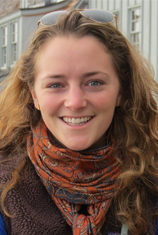

Abstract
Freshwater floodplains are some of the most biodiverse and productive ecosystems on the planet; yet, they are also globally threatened. The two greatest stressors to floodplain ecosystems are altered hydrology (e.g., wetlands disconnected from the river) and non-native species. Floodplain restoration projects are increasing, but they are often hampered by a narrow focus on a single species (e.g., economically-important fish) or habitat (e.g., river connections). Successful conservation will require a more integrated approach that considers dynamics on multiple scales, from the species up to the entire ecosystem.
My research examines how altered hydrology and non-native species affect floodplain species, communities, and ecosystems in order to improve restoration outcomes. I will use the Chehalis River Basin (Washington, USA) as a study system due to its extensive alluvial floodplain with both river-connected and disconnected wetlands where non-native fish and bullfrogs vary greatly in abundance. The Chehalis River is targeted for a series of floodplain restoration projects, but stakeholders need a comprehensive understanding of how restoration decisions affect species, community, and ecosystem dynamics. I will address these research needs by using occupancy models, field surveys, and experiments to evaluate how non-native species and altered hydrology affect native species assemblages, food web structure, and ecosystem productivity. The results of my work will directly inform conservation efforts along the Chehalis River by providing stakeholders with information they need to identify and prioritize restoration actions. More broadly, this whole-system approach to restoration will lead to more effective floodplain management globally.
